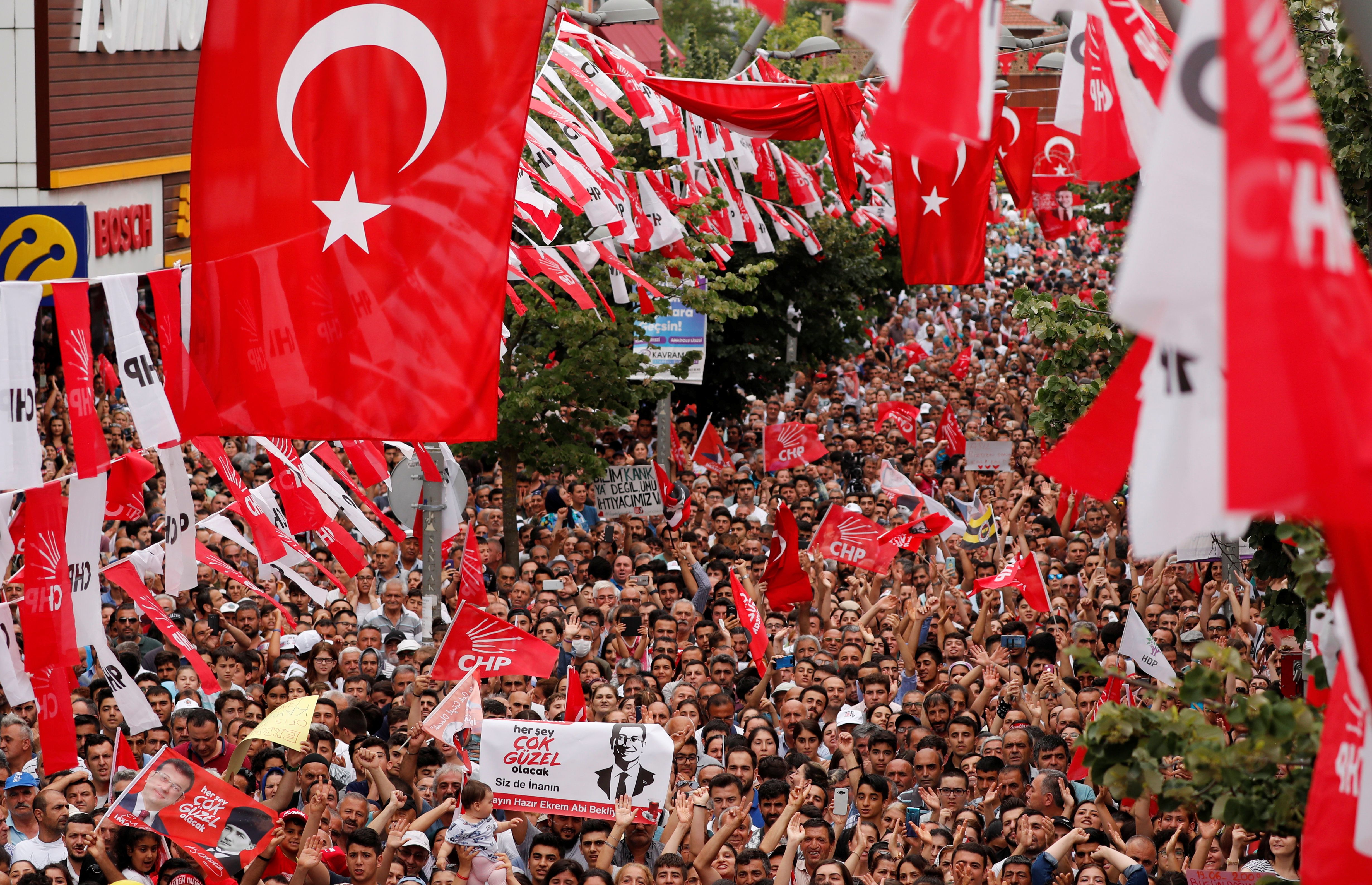June 21, 2019
The original mayor's election was run back in March. But the vote count showed that opposition candidate Ekrem Imamoglu had unexpectedly eked out a victory over Binali Yildirim of President Recep Erdogan's ruling Justice and Development Party, known by its Turkish acronym AKP. So the party pressured the electoral authorities to rerun the vote entirely.
That move provoked howls of protest from Imamoglu's supporters, democracy advocates, and foreign governments increasingly concerned about Turkey's authoritarian drift. But Erdogan has persisted. Losing Istanbul, where he got his start in politics as mayor, would be a huge blow not only to Erdogan personally, but to the AKP, which has controlled the city ever since: the metropolis delivers huge amounts of money and power to the party that holds the mayoralty.
In recent days, Erdogan has thrust himself directly into the race on Yildirim's side, while Imamoglu continues to lead comfortably in the latest polls.
Here's the thing: Erdogan ends up a loser no matter what happens on Sunday.
If his man Yildirim wins, it will almost certainly be viewed as an illegitimate victory, given the do-over and the current polling results. Imamoglu and his supporters aren't likely to take it lying down. If protests erupt, they could quickly spread to other cities — it's worth noting that back in March the AKP also lost control over the capital, Ankara. And coastal Izmir, the third largest city, has always been a bastion of opposition to the AKP.
If he loses, Erdogan will have to either risk forcing through another rerun or trying to block Imamoglu from taking office (which could provoke a huge backlash), or stomach the blow of having lost his hometown twice — a humiliation that could embolden nascent opposition within the more moderate ranks of the AKP or among its former members.
Vote tallies should be in by late night Istanbul time on Sunday. Keep an eye on what Erdogan does on Monday.
From Your Site Articles
Related Articles Around the Web
More For You
- YouTube
In this episode of "ask ian," Ian Bremmer breaks down the growing rift between the US and Canada, calling it “permanent damage” to one of the world’s closest alliances.
Most Popular
Two Iranian motorcyclists stop in front of the burned East Tehran General Directorate of Tax Affairs headquarters in Tehran, Iran, on January 21, 2026.
Photo by Morteza Nikoubazl/NurPhoto
30,000: The estimated death toll in Iran during the protests at the start of the year, per local health officials, underscoring the scale of the Islamic Republic’s crackdown on its own citizens.
The World Health Organization (WHO) headquarters is seen in Geneva, Switzerland, January 28, 2025.
REUTERS/Denis Balibouse
Seventy-eight years after helping found the World Health Organization (WHO), the United States has formally withdrawn from the agency, following through on a pledge President Donald Trump made on his first day back in office.
© 2025 GZERO Media. All Rights Reserved | A Eurasia Group media company.
